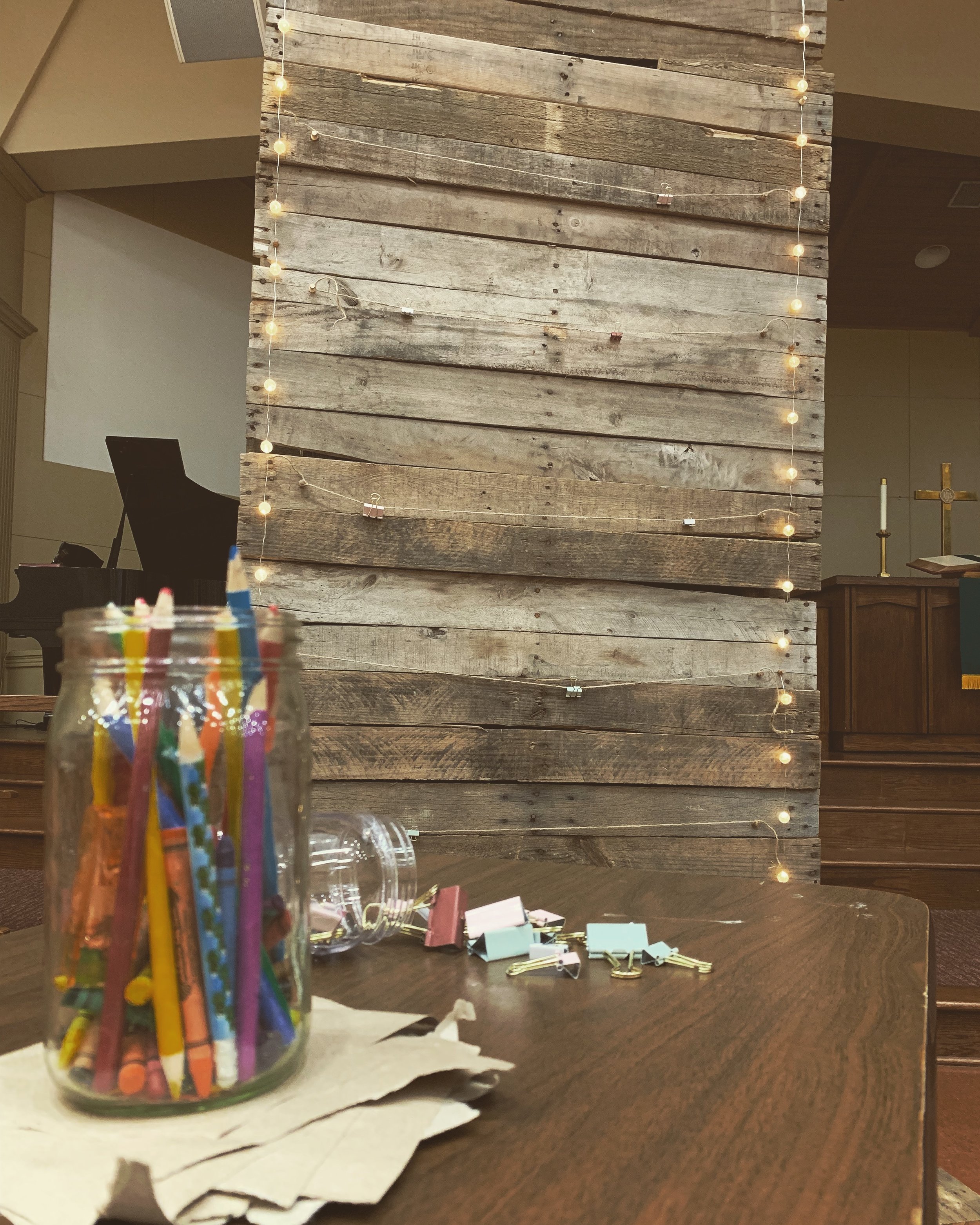Adoration of the Lamb, from Art in the Christian Tradition, a project of the Vanderbilt Divinity Library, Nashville, TN.
“... I believe in the Holy Spirit,
the holy catholic church,
the communion of saints,
the forgiveness of sins,
the resurrection of the body,
and the life everlasting. Amen”
“After this I looked, and there was a great multitude that no one could count, from every nation, from all tribes and peoples and languages, standing before the throne and before the Lamb, robed in white, with palm branches in their hands. They cried out in a loud voice, saying, “Salvation belongs to our God who is seated on the throne, and to the Lamb!””
As the first day of November arrives, so does our observance … celebration … of the Feast of All Saints, the day in the church calendar when we remember those of gone before us into glory, who are now in eternal relationship with the Father, Son, and Holy Spirit. We remember those who are now a part of the heavenly choir we get a glimpse of in John’s Revelation, what church tradition has come to call the “Communion of Saints.”
If you grew up in the Roman Catholic or Mainline Protestant Churches, the communion of saints is a familiar term. However, if you grew up outside of it, like much of my new faith community, it may seem a little strange.
And, it is strange. But, oh, so important to the Christian.
We remember the saints, because as followers of Jesus, they have achieved a goal that we desire to achieve as well: eternal fellowship with the Trinity, in communion with ALL who have gone before.
As United Methodist Christians, we’re all in on remembering the saints, usually the first Sunday after November 1 (which is the official feast day). And as we remember the saints, we lean into an idea that as members of the church on earth, we are part of something eternal that stretches back through the past and far into the future.
Rev. Katie Shockley puts it this way, in an Ask the UMC article:
"When we gather in worship, we praise God with believers we cannot see. When we celebrate Holy Communion, we feast with past, present and future disciples of Christ. We experience the communion of saints, the community of believers –– living and dead. This faith community stretches beyond space and time. We commune with Christians around the world, believers who came before us, and believers who will come after us. We believe that the church is the communion of saints, and as a believer, you belong to the communion of saints.”
At Family Style, our new faith community, this Saturday night we’ll be remembering the saints by offering the names of those that we’ve loved and sent forth in the last year, to be clipped to a wall, a partition, that was built for the gathering. There will be scraps of butcher paper, with crayons and colored pencils out … those are kind of our thing … for children, families, and individuals to add the names to the wall, during our dinner and fellowship time. We’ll read the names during worship to honor the memories of those that we miss. While the larger church we’re a part of will be honoring the memories of those who were members of the church (it’s a large faith community overall, so specific to worship the names are limited), we’ll be putting no criteria out there other than we honor those who were close to our people and have gone on to their eternal reward.
It’s kind of a lovely thing to dream up new ways to bring the ancient ideas into the modern church. Our observance of All Saints will be uniquely ‘Family Style’ in a way, but tied to church tradition in its spirit. I’ve served many churches in my time in ministry and every community has brought their own flavor to All Saints, perhaps more than any other traditionally holy time. But, I look forward, this week, to introducing one of the most important elements of our belief as United Methodist Christians, who believe in the universal catholic church:
As Christians, we are part of something eternal, in the here and now.



